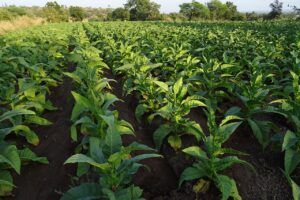Application of Technology:
- Research into gene targets for plant pathogens.
- Control of pathogens for clinical applications.
- Development of biocontrol products for crop protection.
- Development of organic pesticides.
Advantages:
- Reduces dependence on chemical pesticides.
- Increased yield and productivity of agricultural products used in fuel feedstocks, food, pharmaceutical products, and animal feed.
- Promotion of sustainable agriculture through the use of natural, plant-associated antimicrobial agents.
Background:
In the realm of agriculture and plant sciences, combating microbial pathogens is a continuous struggle. These pathogens, which include fungi, Gram-negative, and Gram-positive bacteria, have devastating effects on both agricultural and biofuels feedstock crops, leading to significant losses in yield and productivity. Many traditional methods to control these pathogens involve chemical pesticides, which are harmful for the environment and can pose risks to human health. Further, current approaches fail to fully control the spread of these pathogens, often perpetuating antimicrobial resistance. Consequently, there’s a need for more innovative, environmentally safe biocontrol agents that exhibit antimicrobial properties against these pathogens.
Technology Overview:
Researchers at the Joint Genome Institute (JGI) have discovered a novel family of antimicrobial peptides (AMPs) within a specific selection of Actinobacterial genomes. These AMPs can be used as biocontrol agents against microbial pathogens of important plant crops used for food, medicine, or biofuel feedstocks. These peptides, derived from understudied soil and plant-associated environments, are distantly related to preexisting plant AMPs known to inhibit plant fungal phytopathogens (disease-causing microorganisms of plants). Notably, comparative analysis of genes from over 6,700 isolated Actinobacterial genomes have revealed novel determinants of host-microbe interactions and environment-specific adaptations.
Specifically, the researchers have demonstrated inhibition of Saccharomyces cerevisiae by an AMP candidate from Streptosporangium becharense DSM 46887 cloned into E. coli.
DEVELOPMENT STAGE:
Proof of concept
PRINCIPAL INVESTIGATORS:
- Rekha Seshadri
- Yasuo Yoshikuni
- Natalia Ivanova
STATUS:
Patent Pending
OPPORTUNITIES: Available for licensing or collaborative research.
SEE THESE OTHER BERKELEY LAB TECHNOLOGIES IN THIS FIELD:
